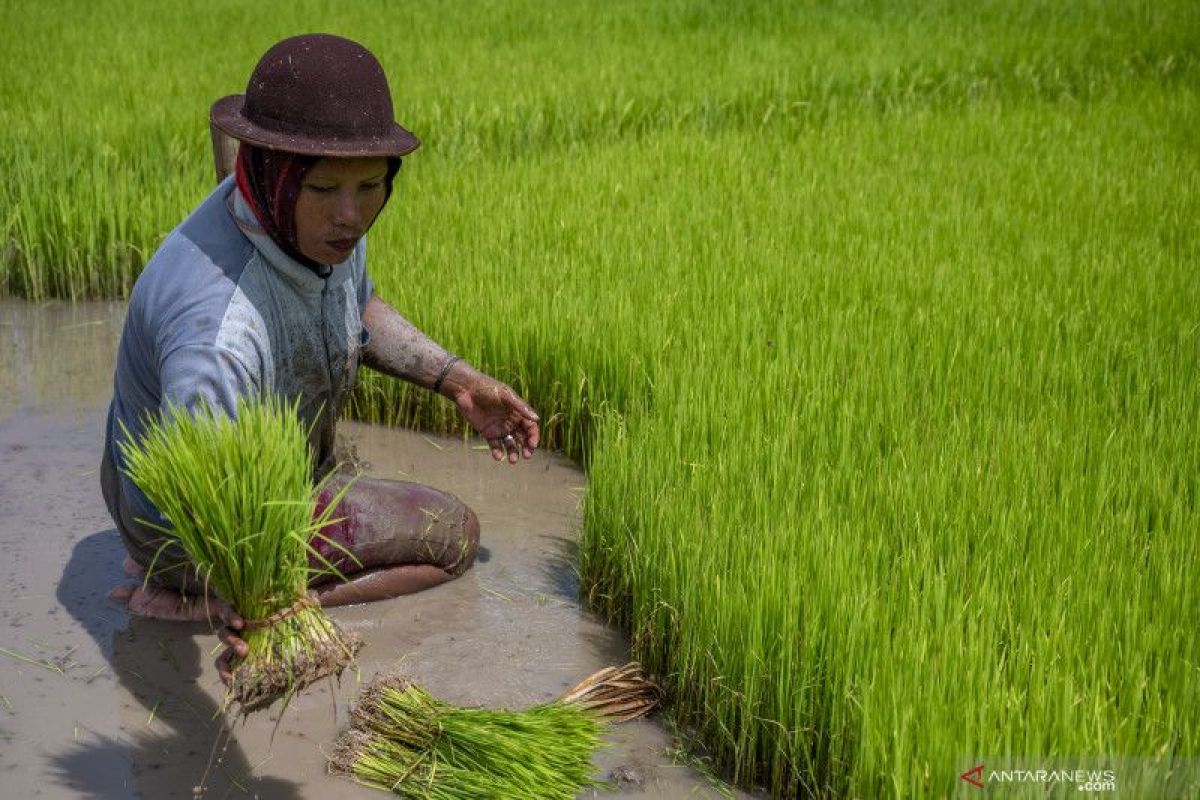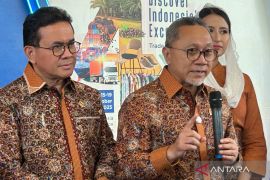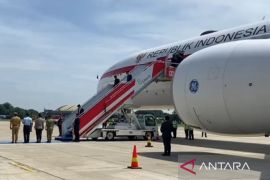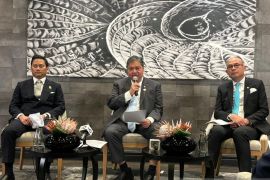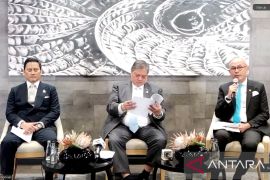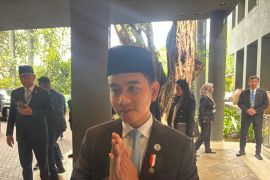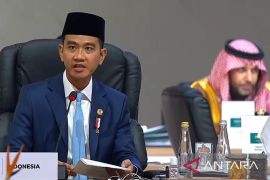SOEs are needed in supporting the success of the food resilience or security agenda of the Indonesian G20 Presidency in 2022 that is considered a year of determination for the national and global economies.
Based on attachment II on the Agenda Matrix of the Sherpa Track Working Group of the G20 Indonesia Presidency 2022 in the Ministerial Decree No. 27 of 2022, some of the priority agendas in the sector of agriculture are building a resilient and sustainable system of food and agriculture.
The attachment also lists the agenda of Innovative Agri-Preneurial through technology and digitalization of agriculture to improve the welfare of farmers in rural areas.
The support of SOEs in realizing the G20 food security agenda comprises encouraging the establishment of a national food ecosystem right from the private sector to local governments.
To this end, SOEs Minister Erick Thohir has invited food sector stakeholders, such as local governments, professionals, private entrepreneurs, and relevant ministries and state institutions to build an agricultural ecosystem together.
Related news: Time to make G20 more accessible to grassroots: SOEs Ministry
"We have the natural resources, farmers, banks, and markets. If there is no connected ecosystem, they will develop independently," Thohir remarked.
Thohir called to take steps to address several gaps in Indonesia's food security ecosystem, especially in the aspects of food production and farmers' welfare.
For instance, the minister noted that improvements were needed in the processing side of Indonesian coffee production. Indonesia is rich in coffee products or resources, though he deemed that the quality of processing fails to match that richness.
He admitted that the Indonesian coffee processing industry still lags behind those of other countries. One of the factors is that Indonesian farmers are trapped in loan sharks and forced to pay debts by harvesting immature coffee beans. They are also forced to do the drying process hastily.
Another aspect to consider in enhancing Indonesian coffee domestically and internationally is the situation of crop failure.
Thus, SOEs need to prepare insurance for farmers to anticipate crop failure. State-owned banks, comprising BRI, BNI, BTN, and Mandiri (Himbara), must also arrange their funding for farmers. In addition, another important part is the fertilization process that must be conducted on time.
Of course, the above recommendations need to be addressed by forming a national food ecosystem. Thohir has established the Project Management Office (PMO) related to coffee commodities to encourage unified efforts to develop and improve the quality of Indonesian coffees.
Related news: Forego mindset that SOEs must be salvaged: Minister Thohir
Furthermore, Thohir inaugurated ID FOOD, a state-run holding in the food sector aimed at making the food supply chain better through coordination.
The establishment of ID FOOD aligns with the Indonesian government's mission and vision in conducting transformation of the food sector in various commodities, such as rice, corn, chicken, cattle, goat, fish, chilli, onions, sugar, and salt.
These different commodities will be connected in one supply chain that ends at retail sales that can later upgrade themselves to become an international-scale company.
Prosperity Program
One of the other SOEs' supports for the G20 Innovative Agri-Preneurial food security agenda through digital agriculture to improve the welfare of farmers in rural or village areas is to continue to encourage the Makmur Program or the Let's Move Forward People's Business Program.
Project Manager of Makmur Program of state fertilizer industry firm PT Pupuk Kalimantan Timur Adrian Putera stated that as part of PT Pupuk Indonesia, his team assessed that the program aimed at improving the prosperity of farmers, and that is in line with the agenda of the Indonesian G20 Presidency.
Since its launch, the Makmur Program has been designed to create an agricultural ecosystem.
The Makmur Program is focused on implementing the triple bottom line (3P), which is People, Planet, Profit, in each of its actions.
Related news: Government to dissolve three inactive SOEs
Therefore, the program is expected to make the agricultural sector in Indonesia sustainable through the use of fertilizers, pesticides, and so on.
The program still guarantees that the agricultural sector can have a positive impact on the Indonesian environment.
In addition, one of the areas of focus in the Makmur Program is the use of technology integration and digitization, such as the use of drones in seed sowing.
This program has also been proven to boost productivity of commodities, such as of corn at 42 percent and rice at 34 percent. On the other hand, income of the farming community can be boosted by 52 percent for corn farmers and 41 percent for rice farmers.
This increase in the farmers' profits indicates that they have augmented their purchasing power, and they have the ability to buy non-subsidized fertilizers. This fact, again, aligns with one of the goals of the program on how to maximize the utilization of non-subsidized fertilizers for agricultural productivity.
Commodities that are priorities comprise rice, corn, chili, palm oil, cassava, coffee, pepper, cocoa, onions, sugarcane, tobacco, pineapple, and mangosteen.
Meanwhile, PT Pupuk Indonesia targets that by 2022, the total planting area of the Makmur Program will cover an area of 250 thousand hectares spread throughout Indonesia, and the sale of non-subsidized fertilizers is expected to reach 125 thousand tons.
Related news: Indonesia pushing agricultural improvement during G20 Presidency
The targeted area will be gradually increased until 2024, and it is expected to reach four million hectares. Meanwhile, the number of farmers involved by 2024 is targeted to reach four million.
PT Pupuk Kalimantan Timur is optimistic of expanding land development under the Makmur Program up to five times in 2022, especially in eastern Indonesia.
CFO at the company, Qomaruzzaman, said his team will continue to focus on expanding development of the Makmur Program, especially to the Eastern Indonesian region, given the huge agricultural potential.
"We create a conducive agricultural ecosystem to support farmers to achieve optimal productivity. In addition to assisting farmers intensively in the daily operational process, we also keep strengthening end-to-end collaboration with various parties, such as financial institutions, government agencies, and corporations," Qomaruzzaman explained.
Related news: BKKBN pushes stunting reduction in 12 priority provinces
Related news: Indonesia prepares for economic impact of Russia-Ukraine conflict
Editor: Fardah Assegaf
Copyright © ANTARA 2022
